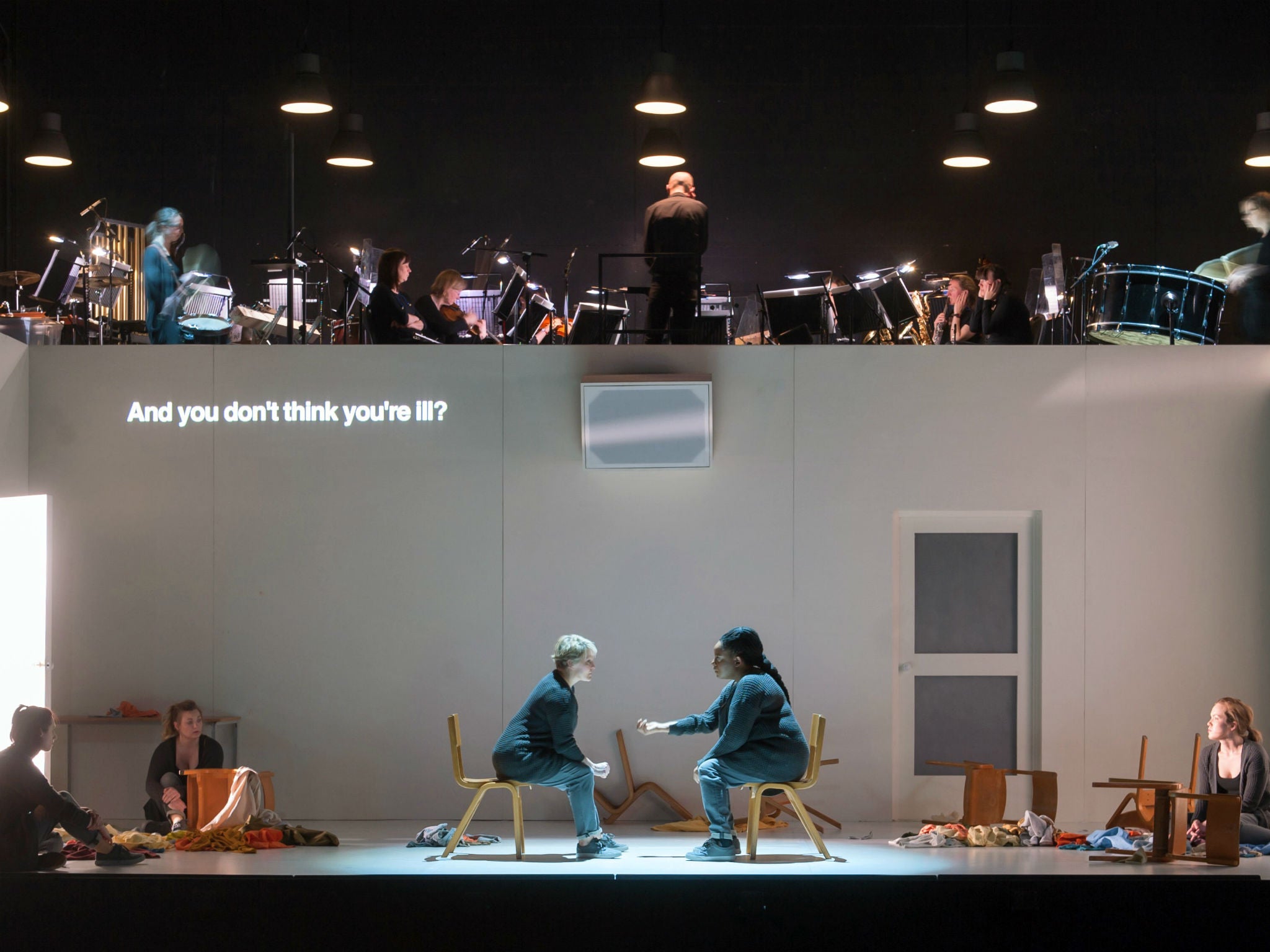4.48 Psychosis, Lyric Hammersmith, review: Sarah Kane’s final play about her suicidal depression compells
A first ever operatic setting by Royal Opera/Guildhall Composer-in-Residence Philip Venables for Sarah Kane's play

Your support helps us to tell the story
From reproductive rights to climate change to Big Tech, The Independent is on the ground when the story is developing. Whether it's investigating the financials of Elon Musk's pro-Trump PAC or producing our latest documentary, 'The A Word', which shines a light on the American women fighting for reproductive rights, we know how important it is to parse out the facts from the messaging.
At such a critical moment in US history, we need reporters on the ground. Your donation allows us to keep sending journalists to speak to both sides of the story.
The Independent is trusted by Americans across the entire political spectrum. And unlike many other quality news outlets, we choose not to lock Americans out of our reporting and analysis with paywalls. We believe quality journalism should be available to everyone, paid for by those who can afford it.
Your support makes all the difference.Suffering from suicidal depression, playwright Sarah Kane experienced her sharpest, most anguished clarity at 4.48am: hence her visceral final play, 4.48 Psychosis. In it, mental extremes are unflinchingly distilled. Wreathed in dark humour or bleak, lyrical beauty, words fragment and coalesce through angry pain and medicated stupor into skinless and terrible lucid freedom.
Where this first-ever operatic setting by Royal Opera House Guildhall composer-in-residence Philip Venables succeeds is through simple honesty. With a score ranging guilelessly from motoric arrhythmia to wispy renaissance, director Ted Huffman and team attempt neither dramatic adornment nor explanation but allow the text to breathe within a kaleidoscope of inner-outer conflict.
On a bare, white-walled stage, six well-matched female singers – led by an outstanding Gweneth-Ann Rand – shuffle greyly distressed. Around them, phrases appear and dissolve in projected sound and video while, above, a superb Chroma ensemble (sensitively conducted by Richard Baker) charts the disintegration of their hive mind. Duelling percussionists parley in a doctor-patient morse code. A tapestry of strings, accordion and saxes evoke polyphonies of yearning, while tenderly but inexorably we encounter hopeless recesses of the mind. Knowledge of Kane’s suicide shortly after writing the play can only make this humane and understated piece the more compelling.
26-28 May, Lyric Hammersmith
ROH: +44 (0)20 7304 4000 / www.roh.org.uk
Join our commenting forum
Join thought-provoking conversations, follow other Independent readers and see their replies
Comments